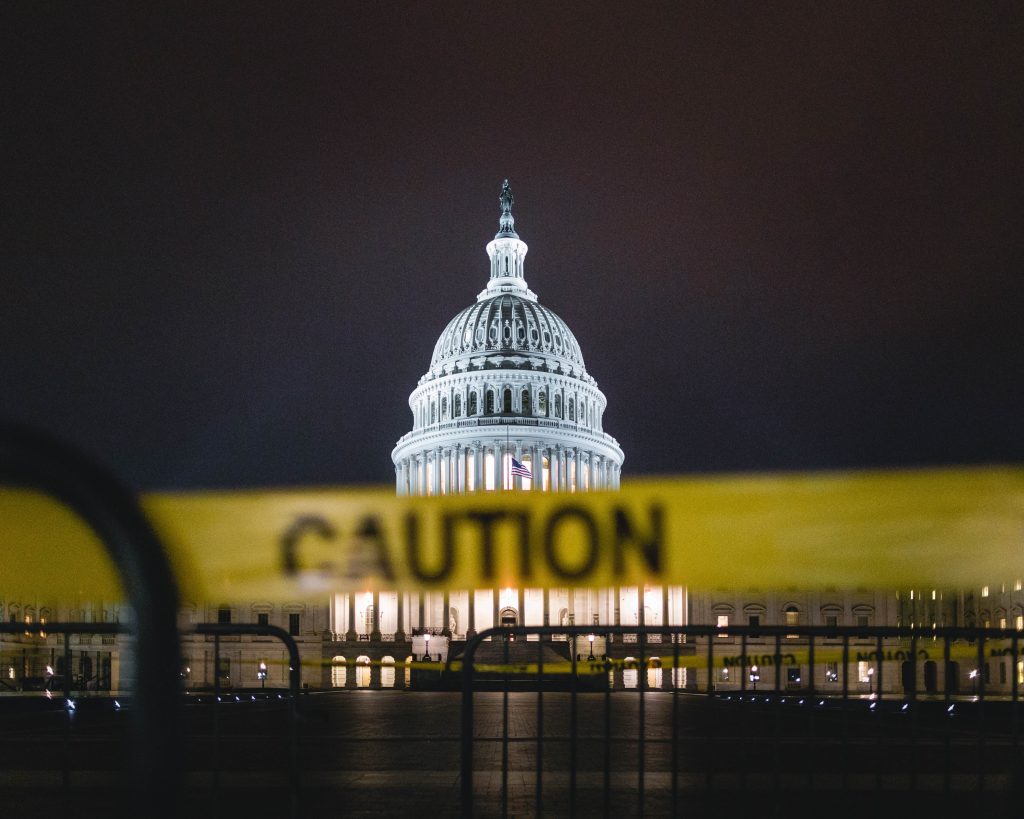Washington Could Learn Something from Silicon Valley

For all the talk of coastal elites, flyover states, “ok boomer” tropes, and bubbles, the political infrastructure of our country seems to be the biggest victim of true isolation. If you’ve been following the news over the last 5 years, there is apparently nothing but doom and gloom on the horizon. This sense of dread and impending chaos is not isolated to only one party. Like an ice cream shop, you can pick your favorite toppings, but strip away all of the sprinkles and fudge, you’re just left with a simple assertion: our best days are behind us. Politicians would make you believe that we are a runaway train. Our brakes are cut and we are approaching a sharp turn that will lead to derailment and chaos.
Pick a topic. Let’s say healthcare, for instance. The conclusion is that our system is an abysmal failure and depending on who you talk, to the reasons are different. One side would argue that we are not doing enough to ensure coverage and it is a moral travesty. The other side claims that the government overreach into the free market is increasing costs and encroaching on liberty. Neither party talks about the incremental progress we have made in expanding coverage, improving outcomes, or discovering groundbreaking new therapies for rare diseases. This same logic could be applied to climate change, social security, infrastructure, national defense, education. The list goes on.
One could have an honest debate about the changes we need to make to our political framework. These discussions are as essential as a good night’s rest. They are foundational to overall social progress and change. And that’s not to say we do not face big, complicated problems that deserve our undying attention. That aside, politicians seem to have boiled the world down to binary positions. Everything is either good or bad. You are either for or against. We are doomed because of x or if we continue doing y, society is going to rip apart by the seams. This kind of thinking is intellectually lazy and counterproductive. I appreciate that it’s easier to find the bad in the world. However, for the so-called responsible people that have been elected to lead our country into the future, slipping into traps of daily despair is both unacceptable and infantile. Their rhetoric breeds resentment and apathy at a time when unity and engagement are sorely needed.
Remember when America had the audacity to stuff three human beings into a 6.1 million pound cylinder, launch it into the sky with enough precision for optimal trajectory to the moon, travel 239,000 miles, land two humans on the surface, travel another 239,000 miles, and then land safely back on Earth? Remember when we did that in 1969? The phone in your pocket has 100,000 times more processing power and 1,000,000 times more memory than the computer onboard that spacecraft. It was an impossible goal at the time. However, we, as a society, had something more important than technology, we had optimism and determination to make the impossible, possible. As President John F. Kennedy famously said, “We choose to go to the Moon! We choose to go to the Moon … We choose to go to the Moon in this decade and do the other things, not because they are easy, but because they are hard; because that goal will serve to organize and measure the best of our energies and skills, because that challenge is one that we are willing to accept, one we are unwilling to postpone, and one we intend to win…”
Somewhere along the way, politicians and the government abandoned the quest for the next great challenge. Luckily, Silicon Valley took the torch and ran.
Today, the startup world is full of dreamers and optimists. They are defining the next great challenge and assembling teams in the hopes of pushing humanity forward. Whether it be creating software to make our lives more seamless, developing systems to harness renewable energy at scale, or isolating novel therapies for diseases that have cost millions of lives, the goal is progress and the only cost to play is putting forth the effort.
The main critique thrown at startups is that they are naive. They are fast and loose, burning money trying to accomplish the impossible. The companies that comprise the ecosystem are led by inexperienced dreamers. That their motives are impure because they are also looking to make money. To that I say, who cares? Is it such a terrible thing that people are passionate enough about a problem to try and fix it? That they see a future in which that problem no longer plagues the world? That even if they cannot totally remedy it, they can make incremental progress? That along the way they make money while potentially improving the lives of thousands to millions? Of course there are excesses and failures and villains that are exposed along the way. No one needs to be reminded of Elizabeth Holmes or Adam Neumann. There are also thousands of other dedicated entrepreneurs who are passionate about their mission to improve the world.
We need Silicon Valley and the startup culture it launched now more than ever. We need the groundbreaking products and innovations that emerge from it. And, most importantly, we need the optimism and hope for a future that is better than today. Politics won’t get us there.






